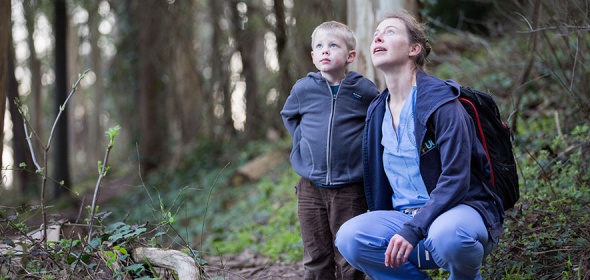By Sunita Mutha, MD, FACP, Director of Healthforce Center
As a physician, professor of medicine, and head of Healthforce Center at UCSF, I spend most of the year thinking about the health and wellness of others. However, I encourage you to take some time to focus on yourself. Not only is it essential for your own health and wellbeing, but it can make a difference in your ability to be resilient and effective at work. Consider adopting six habits to preserve your sanity, de-stress and take care of yourself:
1. Make time for reflection.
In health care we are so focused on productivity,and driving efficiency in the system, that reflection may feel like the luxury you can’t afford. But, slowing down can make you more efficient. Your best and deepest thinking can’t happen in ten-minute increments. Whether your reflection time comes while you exercise or spend time with family, make sure you incorporate it into your day.
2. Go on vacation.
I recently traveled with my family and returned to work with a fresh mind and outlook. The time away was fun, energizing and led to “aha” moments in response to some work issues that had puzzled me for many weeks prior to the vacation. I also returned with more clarity about how I wanted to have an impact, ways in which I wanted to stretch myself as a leader, and gratitude for the opportunity to do the work I get to do.
3. Sleep more.
If you are like me, you’ve been cutting corners on sleep for some time. From 1985 to 2007, the percentage of health care workers reporting six or fewer hours of sleep per day (a level considered by sleep experts to be too short) rose from 28% to 32%. What can you cut from your daily routine that may enable you to hit the hay a couple of hours earlier or sleep a couple of hours later? It’s okay to start small as long as you start somewhere. Your success depends on it.
4. Recognize burnout in yourself and in others.
Forty-six percent of US physicians experience symptoms of burnout, and the condition is prevalent across the health workforce. Burnout is characterized by loss of enthusiasm for work, feelings of cynicism and a low sense of personal accomplishment. It can have a dire impact on your work and your life. Be alert to the symptoms and find ways to re-energize. Making a list of three things I am grateful for at the end of the each day has made a difference for me.
5. Develop others.
Mentoring and coaching others can seem like adding more responsibility to an already full plate. Instead, I have found it to be energizing and recharging. Listening to understand, helping others find their own solutions, and allowing someone to be heard are powerful gifts for both sides.
6. Develop resilience
As a health leader, either on the front lines or in the back office, you are dealing with the tyranny of not enough time, the dramas of urgent and non-urgent ailments, the complexities of human dynamics, and the dysfunction of our health care system on a daily basis. Failure is part of this milieu, especially as you try new ways to do your work and you need the toughness and flexibility to be able to bounce back from difficult issues. (More to come on resilience in future blog posts.)
I encourage you to (re) commit to taking care of yourself so that you have the stamina and enthusiasm to continue the work you are meant to do.

Sunita Mutha, MD, FACP, is the director of Healthforce Center at UCSF. For over a decade, Dr. Mutha has been engaged in leadership development for health professionals with a special focus on emerging leaders and inter-professional training.
